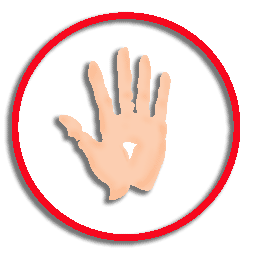|
Ancient Chinese, Greek and Egyptian literature document how
physicians encouraged the use of touch for therapeutic and
diagnostic
purposes. Thousands of years later, touch still serves as
the primary basis of healing. Touch is not a quaint ritual
relegated to ancient beliefs or distant lands, but a vital
part of everyday clinical skills.
From the first handshake to the last pat on your shoulder,
your doctor touches you. You do not know your physician intimately,
yet clinicians have privileged access to your intimate life.
Such access is essential for good doctor-patient relationships.
However, as a patient, itís important to maximize this relationship
by establishing communication and trust with your doctor.
 Here are a few general guidelines to keep in mind when undergoing
any type of clinical examination: Here are a few general guidelines to keep in mind when undergoing
any type of clinical examination:
- Ask for explanation as to the purpose of any specific
examination.
- Ask for specific requirements of examination.
- Expect permission of touch to be obtained.
- Require a third party if it is a sensitive exam.
- Require privacy for dress and undress.
The moral to this story is simple but important: Establish
a relationship with your doctor, one based on a clear understanding
by both parties of what is to be expected. The road to health
is not always easy, but doctors are there to help us make
the ride as smooth as possible.
Reference:
Bowers LJ. Intimate strangers: issues of touch. Topics
in Clinical Chiropractic 2000: Vol. 7, No. 3 pp 11-18.
|



